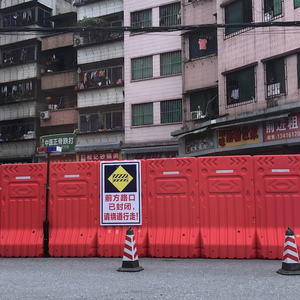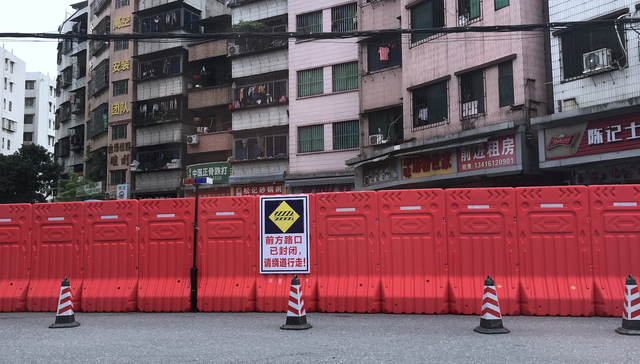By LIANG Zhou, LUO Yingying, XU Yue
As of April 7, 111 imported cases of COVID-19 have been confirmed in Guangzhou, a trading hub in South China. These cases make up nearly a quarter of the total number of confirmed cases city-wide. Several of the newly-confirmed cases are linked to a restaurant called Emma Food in Kuangquan District which is Guangzhou’s “Little Africa”.
According to the Guangzhou Health Commission, four of the five Nigerian residents who tested positive for COVID-19 visited the restaurant regularly. In response, the local authorities have tightened monitoring throughout the affected areas. As the pandemic escalates globally, the challenge of managing imported cases now looms large, especially for a transportation and commercial hub like Guangzhou.
Beginning in March, Guangzhou has been gradually imposing more stringent rules to track and control imported infection of COVID-19. The measures, however, were installed piecemeal.
One of the newly-confirmed Nigerian patients arrived in Guangzhou on March 17th and was able to move about without restrictions. Two days later, 17 imported cases were confirmed in Guangzhou. At that point, the city began to require foreign nationals from 19 countries to self-quarantine at a central facility for 14 days after their arrival. On March 21, this rule was extended to all travelers to Guangdong Province who had recently been abroad — regardless of citizenship. A week later, when it was confirmed that a local resident got infected after close contact with a traveler from Turkey, the quarantine was further extended. Currently, all travelers, regardless of citizenship or destination, are subject to central quarantine and swab tests, either in Guangzhou or in other Guangdong cities. Travelers must pay the costs for testing and quarantine. As of April 6, as many as 3779 travelers from “high-risk outbreak areas” have been tracked and tested.
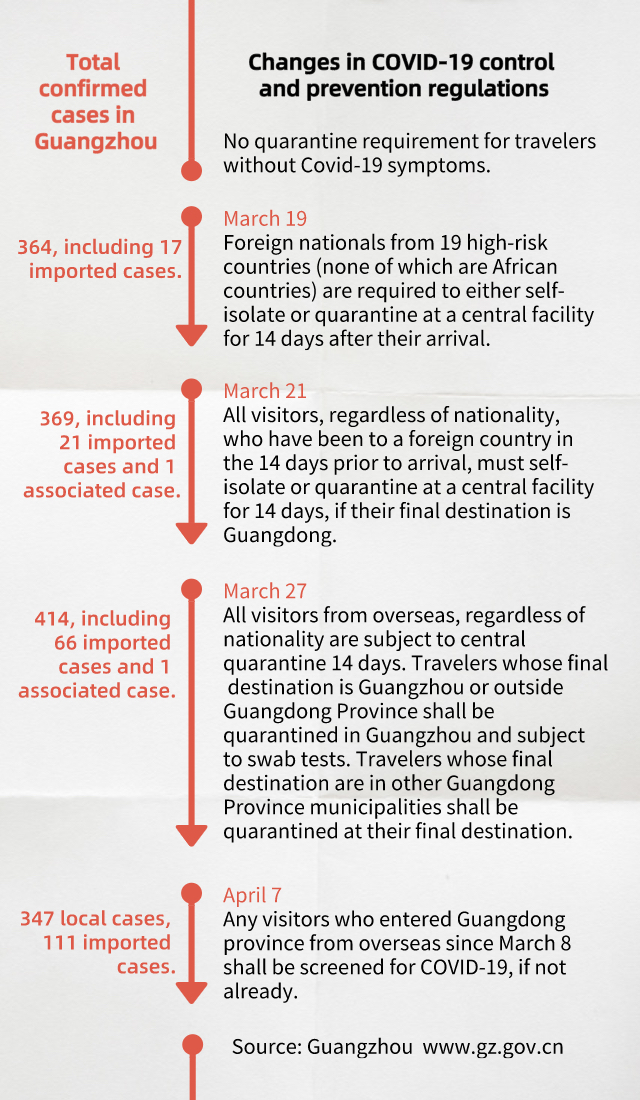
These measures have slowed down but not stopped the spread of imported infections and related community transmissions. In Guangzhou, 111 imported cases have been confirmed since mid March, 25 of which are foreign nationals. In certain Guangzhou communities with a large concentration of immigrants, the challenge remains grave. To remove all potential risks, the municipal government announced on April 7 that it will launch another mass screening program covering all travelers who entered Guangzhou since March 8, even those who went untested when they first arrived. More than 20,000 people will be affected.
Tracing it back to “Emma Food”
The risk of imported infections is demonstrated by a small-scale community transmission in Jieyang, a city four hundred kilometers away from Guangzhou. Two confirmed new cases in Jieyang were linked back to a shop owner and a couple who lived and worked in Guangzhou. Their infections can all be traced to a local restaurant called Emma Food. The shop owner had come into close contact with a Nigerian man that frequented the restaurant, and the wife in the couple worked there.
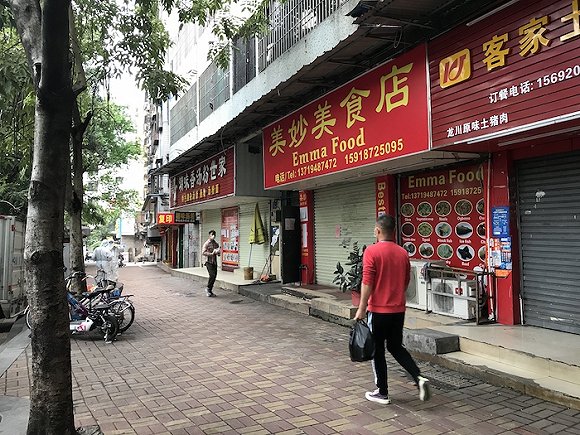
According to the epidemiological tracking record, the 34-year-old Nigerian man visited Emma Food on March 26. The man had been living in Nigeria before he left Lagos for Guangzhou on March 17. His temperature was normal when he landed, so by the then-effective local regulations, he was exempted from self-isolation or central quarantine requirements. He took a taxi to his apartment near Kuangquan District, but on March 22, as the city implemented more stringent measures to detect imported infections, he was transferred to a central quarantine facility. There, he tested positive for COVID-19, and a CT scan also showed inflammation in his lungs.
The local authority, which was already on guard against imported infections, took this case seriously. A bottom-up, community-based mass screening ensued, during which five people living in Kuangquan District, all Nigerian citizens, tested positive for COVID-19. Four of them, as it turned out, had recently dined at Emma Food multiple times.
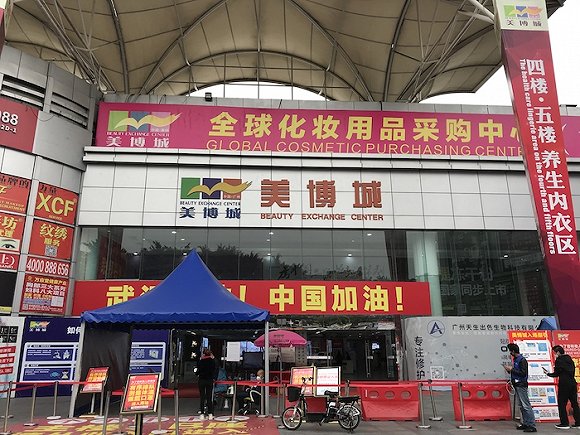
The neighborhood rolled back some of the tougher measures during lockdown. Emma Food was shut down immediately. One after another, the shops nearby were ordered to close, at least for two weeks. Security guards in protective gear patrol the empty streets.
Two minutes walk from Emma Food is a wholesale mall called “Meibo City”. At normal times, it is a bustling market selling cheap cosmetic products and clothes. Many of its customers are from Africa. “They like to eat at Emma food,” said a cashier at a supermarket nearby. Her store has stopped serving African customers.
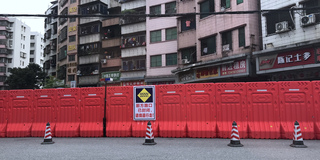
Africans facing uncertainties in affected areas
As news of the imported infections broke out, rumors of “a military lockdown”, and of “300,000 African immigrants” went viral on social media. Yet, the attitudes of local Guangzhou residents remain ambiguous, or cautious at least. A taxi driver told Jiemian News that many of his colleagues are now unwilling to take passengers there to Kuangquan District. He himself put on a more heavy-duty mask when he learned that the reporter was, in fact, going to Yaotai Village in the district.
Yaotai is located in the outskirts of the megacity of Guangzhou. It is crammed full of wholesale markets, specializing in different cheap, low-margin products such as clothes, watches, and beauty products. It is the epitome of the booming small commodity market of Guangzhou, which, since China opened its market in the late 1970s, has attracted waves of traders, entrepreneurs, and wheeler-dealers from home and abroad.
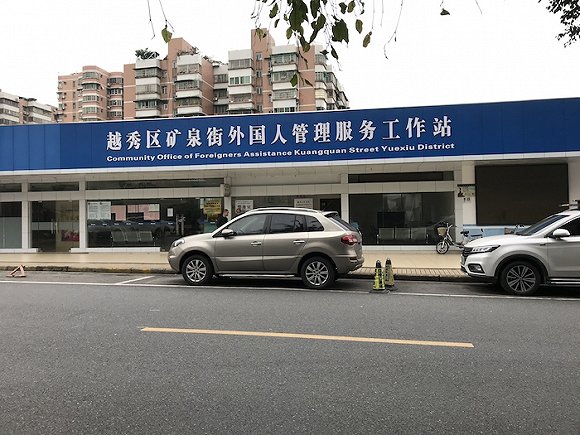
According to the data from Guangzhou Police Department, about 15,000 Africans were already living in Guangzhou by 2014, a small fraction of the total foreign population of the city. Many of them have settled in Yaotai in recent years, to take advantage of its low cost of living and bustling local export market.
Local health officials hurried to deny the rumors of lockdown. They also clarified that there are not nearly as many as 300,000 African immigrants in Yaotao. They explained that people and vehicles can still go in and out of the village after routine checks and registrations. Still, more stringent monitoring measures have been imposed. Check points are installed. Some roads are closed. Deliveries have to be dropped at the entrance of the village. Many shops that reopened in March were told to close again, “at least until April 18”, as a worker at a local beverage shop told Jiemian News.
Other locals, however, are more relaxed about it. “Most shops are closed. But supermarkets are open. So it’s not much different from February, at least to me,” a local resident said. The only change was that her company asked her to work from home for one week after the imported cases were confirmed here.
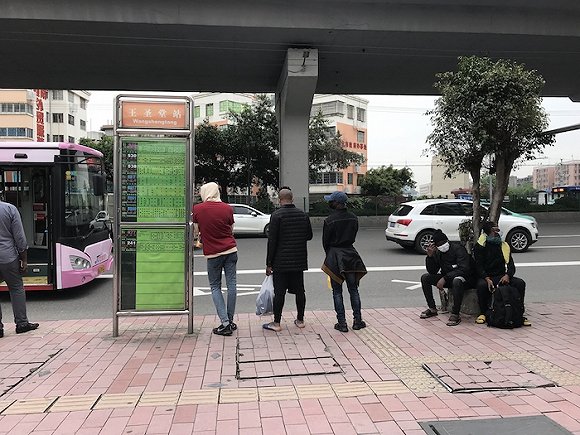
In the African community, however, there’s more tension in the air.
The government has been conducting an intensive screening among the city’s foreign residents, who are required to register their personal information and travel record at the local police department. Some have been visited by the police and health workers at home to take a swab test on the spot. Security guards are stationed on a previously busy road, where African workers carrying huge parcels hurry by. In several wholesale markets, only Chinese workers are allowed in.
A Kenyan woman, who preferred to remain anonymous, told Jiemian News that her landlord had been asking her to move out despite the fact that she has never left China since the initial outbreak in January. It feels unfair to her, since she has been very diligent in wearing masks and taking other protective measures. Healthcare workers have also taken a swab sample from her to test for COVID-19 just hours after she registered with local police.
So far, she has been able to stay in her rented apartment and move freely in the city, but the future remains uncertain. At least she is young and single, she said. What worries her more is her fellow expats who face similar mistreatment from their landlords. With a large family and small children, moving in the city, especially during this time, will prove to be hard.
